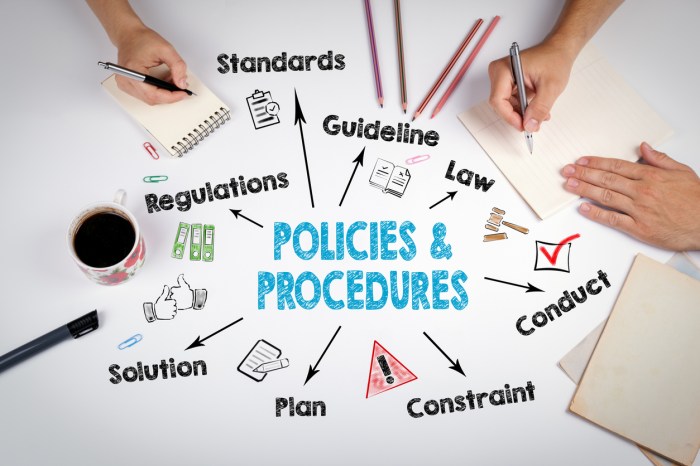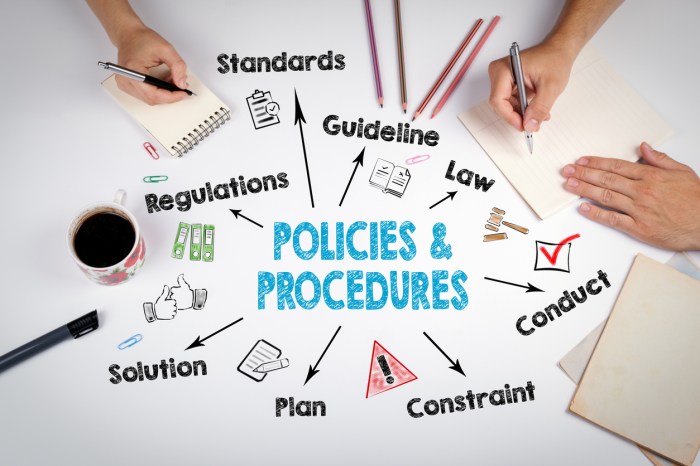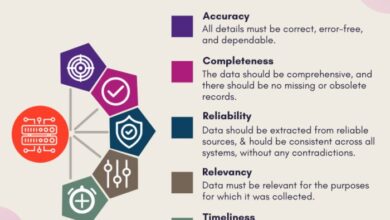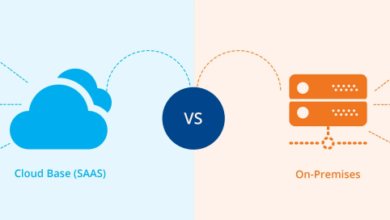
Data Governance in Entertainment: Protecting Fans and Profits
Data governance in entertainment is a crucial aspect of navigating the modern media landscape. With the rise of streaming services, social media, and the constant influx of user data, entertainment companies face unprecedented challenges in managing and protecting sensitive information.
Poor data governance can lead to serious consequences, including data breaches, legal issues, and reputational damage. However, effective data governance can be a powerful tool for enhancing business operations, boosting customer engagement, and generating new revenue streams.
This blog post will delve into the key components of data governance in entertainment, exploring the core principles, designing a framework tailored to the industry’s specific needs, and analyzing the roles and responsibilities of different stakeholders. We will also examine data governance challenges and best practices across various entertainment sectors, including film, music, gaming, and streaming services.
Finally, we’ll discuss emerging trends in data governance, such as the impact of AI, blockchain, and the Internet of Things, and explore how entertainment companies can leverage data analytics to improve decision-making and create new opportunities.
The Importance of Data Governance in Entertainment

The entertainment industry is a data-driven landscape, where information about audiences, content, and business operations is crucial for success. From streaming platforms to movie studios, entertainment companies collect vast amounts of data, making effective data governance essential for managing and protecting this valuable asset.
Challenges of Data Management in Entertainment
The entertainment industry faces unique challenges in managing and protecting data. These challenges stem from the industry’s dynamic nature, the vast volume of data generated, and the evolving regulatory landscape.
- Data Silos:Data is often scattered across different departments and systems, making it difficult to gain a comprehensive view of the information. This fragmentation hinders data analysis and decision-making.
- Data Security:The entertainment industry is a prime target for cyberattacks, with sensitive data like customer information, financial records, and intellectual property being highly sought after. Protecting this data requires robust security measures and a proactive approach to risk management.
- Data Privacy Regulations:The entertainment industry is subject to a growing number of data privacy regulations, such as the General Data Protection Regulation (GDPR) and the California Consumer Privacy Act (CCPA). Complying with these regulations requires a deep understanding of data governance principles and practices.
- Data Quality:Maintaining data accuracy and consistency is crucial for effective decision-making. Inaccurate or incomplete data can lead to flawed insights, missed opportunities, and costly mistakes.
Potential Risks of Poor Data Governance
Neglecting data governance can lead to significant risks, impacting the entertainment industry’s financial stability, reputation, and customer trust.
- Data Breaches:Poor data security practices can result in data breaches, exposing sensitive information to unauthorized access. This can lead to financial losses, legal liabilities, and reputational damage.
- Legal Issues:Failure to comply with data privacy regulations can result in hefty fines, lawsuits, and other legal consequences. Companies must ensure they have the necessary policies and procedures in place to protect customer data.
- Reputational Damage:Data breaches and privacy violations can severely damage a company’s reputation, leading to customer distrust, loss of market share, and decreased brand value. Maintaining a strong reputation requires prioritizing data security and privacy.
Benefits of Effective Data Governance
Implementing effective data governance practices can significantly enhance the entertainment industry’s business operations, customer engagement, and revenue generation.
- Improved Decision-Making:Data governance enables companies to gain a clear understanding of their data, facilitating data-driven decision-making across all departments. This leads to better content development, targeted marketing campaigns, and optimized business strategies.
- Enhanced Customer Engagement:Data governance allows companies to personalize customer experiences, delivering relevant content and recommendations based on individual preferences. This fosters stronger customer relationships and drives loyalty.
- Increased Revenue Generation:By leveraging data insights, entertainment companies can identify new revenue streams, optimize pricing strategies, and increase content monetization opportunities. Data-driven insights enable companies to make informed decisions that maximize revenue potential.
Key Components of Data Governance in Entertainment
Data governance is essential for the entertainment industry, ensuring the responsible and ethical use of data to enhance operations, optimize content, and build stronger relationships with audiences. This section delves into the key components that form the foundation of a robust data governance framework within the entertainment industry.
Core Principles of Data Governance
The principles of data governance guide the responsible management of data, establishing a framework for data ownership, access control, quality, and security.
Data governance in entertainment is a complex topic, requiring careful consideration of privacy, security, and the ethical use of information. Just like crafting the perfect recipe, like this basil cheesecake with chocolate sauce , each element must be carefully balanced to achieve a harmonious outcome.
Similarly, effective data governance in entertainment requires a well-defined strategy that ensures the responsible use of data while maximizing its value for creative and business endeavors.
- Data Ownership:Clearly defining data ownership is crucial. This involves identifying the individuals or teams responsible for the accuracy, integrity, and usage of specific datasets. For instance, in a streaming service, the product team might own user data, while the marketing team owns customer engagement data.
This principle ensures accountability and fosters a sense of responsibility for data quality and compliance.
- Access Control:Implementing robust access control mechanisms is essential to prevent unauthorized access and ensure data confidentiality. Access should be granted based on roles and responsibilities, with different levels of permissions for different users. This can be achieved through role-based access control (RBAC) systems, where users are assigned specific roles with defined access privileges.
For example, a marketing analyst might have read-only access to customer data, while a data scientist might have write access for model development.
- Data Quality:Maintaining high data quality is paramount for accurate insights and informed decision-making. This involves establishing data quality standards and implementing processes to ensure data accuracy, completeness, consistency, and timeliness. For instance, in a movie production company, ensuring the accuracy of box office data is crucial for financial reporting and future planning.
- Data Security:Data security measures are vital to protect sensitive information from unauthorized access, use, disclosure, disruption, modification, or destruction. This involves implementing technical and organizational safeguards, such as encryption, firewalls, and access controls. For example, a music streaming platform should encrypt user data and implement strong authentication measures to prevent unauthorized access to user accounts and personal information.
Data Governance Framework for Entertainment
A data governance framework tailored to the entertainment industry must address specific challenges related to fan data, intellectual property, and content distribution.
- Fan Data Management:The entertainment industry relies heavily on fan data to personalize experiences, target marketing campaigns, and foster engagement. This requires a comprehensive framework for collecting, storing, using, and sharing fan data ethically and responsibly. This includes obtaining informed consent, providing transparency about data usage, and implementing robust data privacy measures.
Data governance in entertainment is crucial for ensuring responsible use of user information. This includes managing how data is collected, stored, and used, especially when it comes to personalized recommendations and targeted advertising. For instance, app store search ads rely heavily on data analysis to deliver relevant content to users.
By understanding data governance principles, entertainment companies can leverage data effectively while prioritizing user privacy and ethical considerations.
- Intellectual Property Protection:Protecting intellectual property is paramount in the entertainment industry. This involves establishing clear policies and procedures for managing and securing copyrighted content, including music, films, and TV shows. Data governance plays a critical role in ensuring the integrity and security of digital assets, preventing unauthorized copying and distribution.
- Content Distribution and Analytics:Data governance is crucial for managing content distribution and analyzing audience engagement. This involves tracking content consumption patterns, identifying audience preferences, and optimizing content delivery based on data-driven insights.
Stakeholder Roles and Responsibilities
A successful data governance framework requires the collaboration of various stakeholders, each with specific roles and responsibilities.
| Stakeholder | Role | Responsibilities |
|---|---|---|
| Data Owner | Responsible for the data | Defining data quality standards, ensuring data accuracy and completeness, authorizing access, and managing data security. |
| Data Steward | Guardian of the data | Monitoring data quality, ensuring data compliance with policies and regulations, resolving data issues, and facilitating data governance processes. |
| Data Analyst | User of the data | Analyzing data to extract insights, developing data-driven solutions, and communicating findings to stakeholders. |
Data Governance in Specific Entertainment Sectors
Data governance in entertainment is essential for managing and protecting sensitive information, complying with regulations, and maximizing the value of data assets. However, the specific challenges and best practices vary significantly across different entertainment sectors. This section will delve into the unique aspects of data governance in film, music, gaming, and streaming services.
Data governance in entertainment is a complex issue, with concerns around user privacy and the ethical use of data. But the potential for innovation is vast, and this is especially true when it comes to the future of gaming. Imagine a world where you could play classic console games on your iPhone with unparalleled fidelity, thanks to the power of emulation.
This is becoming a reality with the advent of new app store alternatives, such as the one discussed in this article this app store alternative could make the iphone the ultimate emulation smartphone and it even has apples blessing , which even has Apple’s blessing.
As we move towards a future where entertainment is increasingly digital, data governance will be crucial to ensuring a safe and enjoyable experience for all.
Data Governance in Film
The film industry faces unique data governance challenges, including the need to protect intellectual property, manage complex production workflows, and comply with regulations regarding actors’ rights and privacy. Data governance policies in film often focus on:
- Intellectual Property Protection:Strict access controls and data encryption are implemented to safeguard scripts, production materials, and unreleased footage.
- Production Workflow Management:Data governance frameworks streamline the flow of information between different departments, including casting, production, post-production, and distribution.
- Privacy and Data Security:Film companies must adhere to regulations like the California Consumer Privacy Act (CCPA) and the General Data Protection Regulation (GDPR) to protect the personal data of actors, crew members, and fans.
Examples of data governance policies used by leading film companies include:
- Warner Bros. Entertainment:The company has a comprehensive data governance framework that covers data security, privacy, and intellectual property protection. It also employs data-driven analytics to optimize film production and distribution.
- Disney:Disney utilizes data governance principles to manage its vast library of content, protect intellectual property, and personalize customer experiences. The company also invests heavily in data security and privacy compliance.
Data Governance in Music
The music industry is undergoing a digital transformation, with streaming services becoming the dominant mode of music consumption. This shift has introduced new data governance challenges related to music licensing, royalty payments, and user privacy.Key aspects of data governance in music include:
- Music Licensing and Royalties:Data governance systems track music usage, calculate royalties, and ensure fair compensation for artists and songwriters.
- User Privacy and Data Security:Music streaming services collect vast amounts of user data, such as listening habits and personal information. Data governance policies must protect this data and comply with privacy regulations.
- Content Management and Distribution:Data governance helps manage music catalogs, track distribution channels, and ensure the integrity of music files.
Examples of data governance policies used by leading music companies include:
- Spotify:Spotify utilizes data governance to manage its massive music catalog, track user listening habits, and personalize recommendations. The company has also implemented robust data security measures to protect user privacy.
- Universal Music Group (UMG):UMG has a data governance framework that covers music licensing, royalty payments, and data security. The company also uses data analytics to understand consumer trends and optimize music distribution.
Data Governance in Gaming
The gaming industry is known for its complex data ecosystems, with players generating vast amounts of data through gameplay, in-game purchases, and online interactions. Data governance is crucial for managing this data, protecting player privacy, and fostering a safe and engaging gaming environment.Data governance in gaming typically focuses on:
- Player Data Management:Data governance policies ensure the responsible collection, storage, and use of player data, including personal information, gameplay statistics, and in-game purchases.
- Data Security and Privacy:Gaming companies must implement strong data security measures to protect player data from unauthorized access, breaches, and misuse.
- Game Analytics and Performance:Data governance helps game developers collect and analyze player data to improve game design, balance gameplay, and identify potential issues.
Examples of data governance policies used by leading gaming companies include:
- Electronic Arts (EA):EA has a comprehensive data governance framework that covers player data privacy, security, and usage. The company also uses data analytics to improve game performance and personalize player experiences.
- Microsoft:Microsoft’s Xbox platform has strict data governance policies that focus on player privacy, data security, and responsible data usage. The company also uses data analytics to enhance the gaming experience for Xbox users.
Data Governance in Streaming Services, Data governance in entertainment
Streaming services have revolutionized entertainment consumption, but they also face unique data governance challenges related to content licensing, user privacy, and content recommendation algorithms.Data governance in streaming services often focuses on:
- Content Licensing and Rights Management:Streaming services must manage complex licensing agreements and ensure the proper use and distribution of copyrighted content.
- User Data and Privacy:Streaming services collect extensive user data, including viewing habits, preferences, and personal information. Data governance policies must protect this data and comply with privacy regulations.
- Content Recommendation Algorithms:Data governance helps ensure that content recommendation algorithms are fair, transparent, and do not discriminate against users based on their demographics or other factors.
Examples of data governance policies used by leading streaming services include:
- Netflix:Netflix utilizes data governance to manage its vast library of content, track user viewing habits, and personalize recommendations. The company also has a strong focus on data security and privacy compliance.
- Amazon Prime Video:Amazon Prime Video uses data governance to manage its streaming content, track user preferences, and personalize recommendations. The company also employs data analytics to optimize its content library and user experience.
Emerging Trends in Data Governance for Entertainment
The entertainment industry is undergoing a rapid transformation, driven by the convergence of technology, consumer behavior, and data. This evolution is creating new opportunities for innovation and growth, but it also presents unique challenges for data governance. The rise of artificial intelligence (AI), blockchain, and the Internet of Things (IoT) is reshaping the landscape of entertainment data, demanding a more sophisticated approach to data management.
The Impact of Emerging Technologies on Data Governance in Entertainment
The advent of AI, blockchain, and IoT is fundamentally altering how entertainment companies collect, store, and utilize data. These technologies offer exciting possibilities for enhancing the consumer experience, optimizing operations, and creating new revenue streams. However, they also introduce new complexities and challenges for data governance.
- Artificial Intelligence (AI):AI-powered algorithms are transforming various aspects of the entertainment industry, from content creation and distribution to personalized recommendations and targeted advertising. The use of AI for data analysis and decision-making raises important questions about data privacy, bias, and transparency.
- Blockchain:Blockchain technology offers a decentralized and secure platform for managing digital assets, including intellectual property rights and content licensing. This has significant implications for data governance in the entertainment industry, particularly for tracking ownership and preventing piracy.
- Internet of Things (IoT):The proliferation of connected devices is generating a massive amount of data, including user preferences, viewing habits, and real-time feedback. This data can be leveraged to personalize content, optimize marketing campaigns, and enhance the overall entertainment experience. However, it also raises concerns about data security and privacy.
Data Ethics and Privacy in Entertainment Data Management
As entertainment companies collect and analyze increasing amounts of data, the importance of data ethics and privacy is paramount. Consumers are becoming increasingly aware of their data rights and expect transparency from companies regarding how their data is being used.
“Data privacy and security are not just legal requirements, but also essential for building trust and maintaining a positive brand reputation.”
- Data Minimization:Entertainment companies should collect only the data that is absolutely necessary for their business operations and ensure that data is not collected or stored for longer than required.
- Transparency and Consent:Users should be informed about how their data is being collected, used, and shared. Clear and concise privacy policies should be readily available, and users should have the right to opt out of data collection or access and delete their personal data.
- Data Security:Entertainment companies must implement robust security measures to protect user data from unauthorized access, use, disclosure, alteration, or destruction. This includes measures such as encryption, access controls, and regular security audits.
Leveraging Data Analytics and Insights in Entertainment
Data analytics plays a crucial role in helping entertainment companies make informed decisions, personalize content, and create new revenue streams. By analyzing data about consumer preferences, viewing habits, and market trends, companies can gain valuable insights that can inform their content strategy, marketing campaigns, and business development initiatives.
- Content Optimization:Data analytics can help entertainment companies identify popular genres, themes, and formats, enabling them to create content that resonates with their target audience. By analyzing data about user engagement and feedback, companies can refine their content strategy and optimize their production processes.
- Personalized Recommendations:Data analytics can be used to personalize content recommendations for individual users, improving the overall user experience and increasing engagement. By analyzing user data, companies can develop sophisticated recommendation algorithms that suggest content tailored to specific interests and preferences.
- Targeted Marketing:Data analytics enables entertainment companies to target their marketing campaigns to specific demographics and consumer segments, maximizing reach and effectiveness. By analyzing data about user behavior and preferences, companies can develop targeted marketing campaigns that are more likely to resonate with their target audience.
- New Revenue Streams:Data analytics can help entertainment companies identify new revenue opportunities, such as targeted advertising, personalized subscriptions, and data-driven product development. By analyzing data about user behavior and market trends, companies can identify emerging trends and develop new products and services that meet evolving consumer needs.
Case Studies and Best Practices
Data governance in entertainment is not just a theoretical concept; it’s a practical reality that entertainment companies are implementing to improve their business outcomes. This section examines successful data governance initiatives by entertainment companies, exploring the strategies and technologies employed, and offering recommendations for others to improve their data governance practices.
Data Governance at Netflix
Netflix, a global streaming giant, has implemented a robust data governance framework that has significantly impacted its business success. This framework focuses on data quality, security, and accessibility, ensuring that Netflix can make informed decisions based on accurate and reliable data.
Key Strategies and Technologies
- Data Catalog:Netflix has developed a comprehensive data catalog that provides a centralized repository of all its data assets. This catalog enables users to easily discover, understand, and access the data they need.
- Data Quality Monitoring:Netflix has implemented data quality monitoring tools that continuously assess the accuracy and completeness of its data. This ensures that data is reliable and can be used for decision-making.
- Data Security and Privacy:Netflix has prioritized data security and privacy, implementing robust security measures to protect sensitive data and comply with data privacy regulations.
Impact on Business Outcomes
Netflix’s data governance initiatives have resulted in several positive business outcomes:
- Improved Content Recommendations:By leveraging accurate and accessible data, Netflix has enhanced its content recommendation algorithms, leading to higher user engagement and satisfaction.
- Enhanced Marketing Campaigns:Netflix’s data-driven insights have allowed it to create more targeted and effective marketing campaigns, resulting in increased customer acquisition and retention.
- Optimized Content Production:Data analysis helps Netflix identify content trends and audience preferences, enabling it to make informed decisions about content production and distribution.
Data Governance at Disney
Disney, a global entertainment conglomerate, has adopted a data governance approach that emphasizes data consistency, compliance, and value creation. Disney’s data governance framework ensures that its data is accurate, secure, and readily available for various business functions.
Key Strategies and Technologies
- Data Lake:Disney has implemented a data lake to store and manage its vast amount of data from various sources, including theme parks, streaming services, and merchandise sales. This centralized data repository facilitates data analysis and insights generation.
- Data Governance Policies:Disney has established comprehensive data governance policies that define data ownership, access controls, and data quality standards. These policies ensure data integrity and compliance with industry regulations.
- Data Governance Tools:Disney utilizes data governance tools to automate data quality checks, enforce access controls, and track data lineage. This automation streamlines data governance processes and improves efficiency.
Impact on Business Outcomes
Disney’s data governance initiatives have yielded several positive business outcomes:
- Personalized Guest Experiences:By leveraging data from theme park visits, Disney can personalize guest experiences, enhancing customer satisfaction and loyalty.
- Optimized Marketing Strategies:Data analysis helps Disney identify customer segments and tailor marketing campaigns to specific audiences, resulting in higher conversion rates.
- Enhanced Content Creation:Data insights into audience preferences and market trends inform Disney’s content creation decisions, leading to more successful and profitable productions.
Recommendations for Entertainment Companies
Entertainment companies looking to improve their data governance practices can benefit from the following recommendations:
- Establish a Clear Data Governance Framework:Define data ownership, access controls, data quality standards, and compliance requirements. This framework should be documented and communicated across the organization.
- Implement Data Governance Tools:Utilize data governance tools to automate data quality checks, enforce access controls, and track data lineage. This will improve efficiency and reduce manual effort.
- Promote Data Literacy:Educate employees about the importance of data governance and how to work with data responsibly. This will foster a data-driven culture within the organization.
- Continuously Monitor and Improve:Regularly review and assess data governance practices to identify areas for improvement. This iterative approach ensures that data governance remains effective and relevant.







